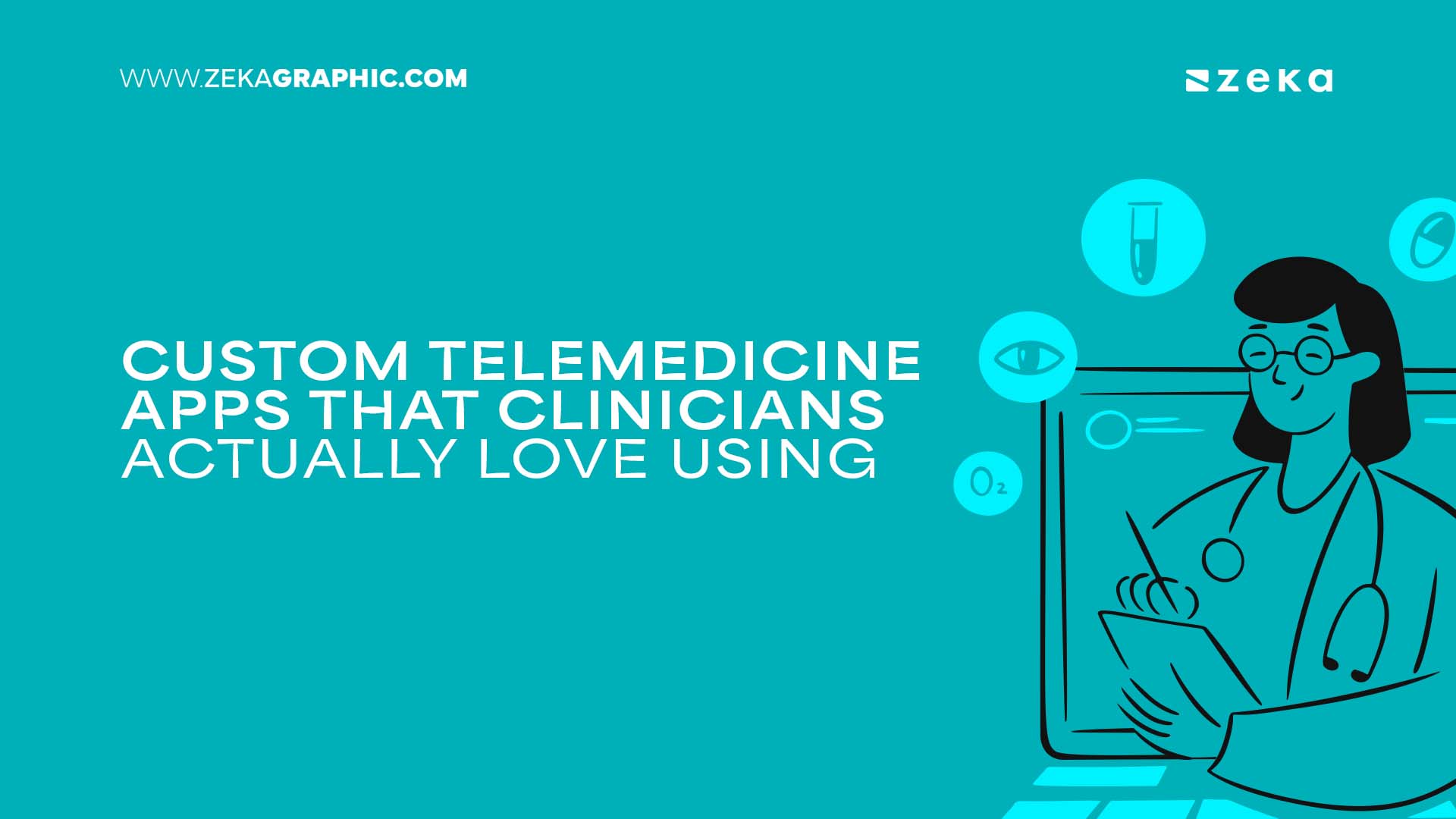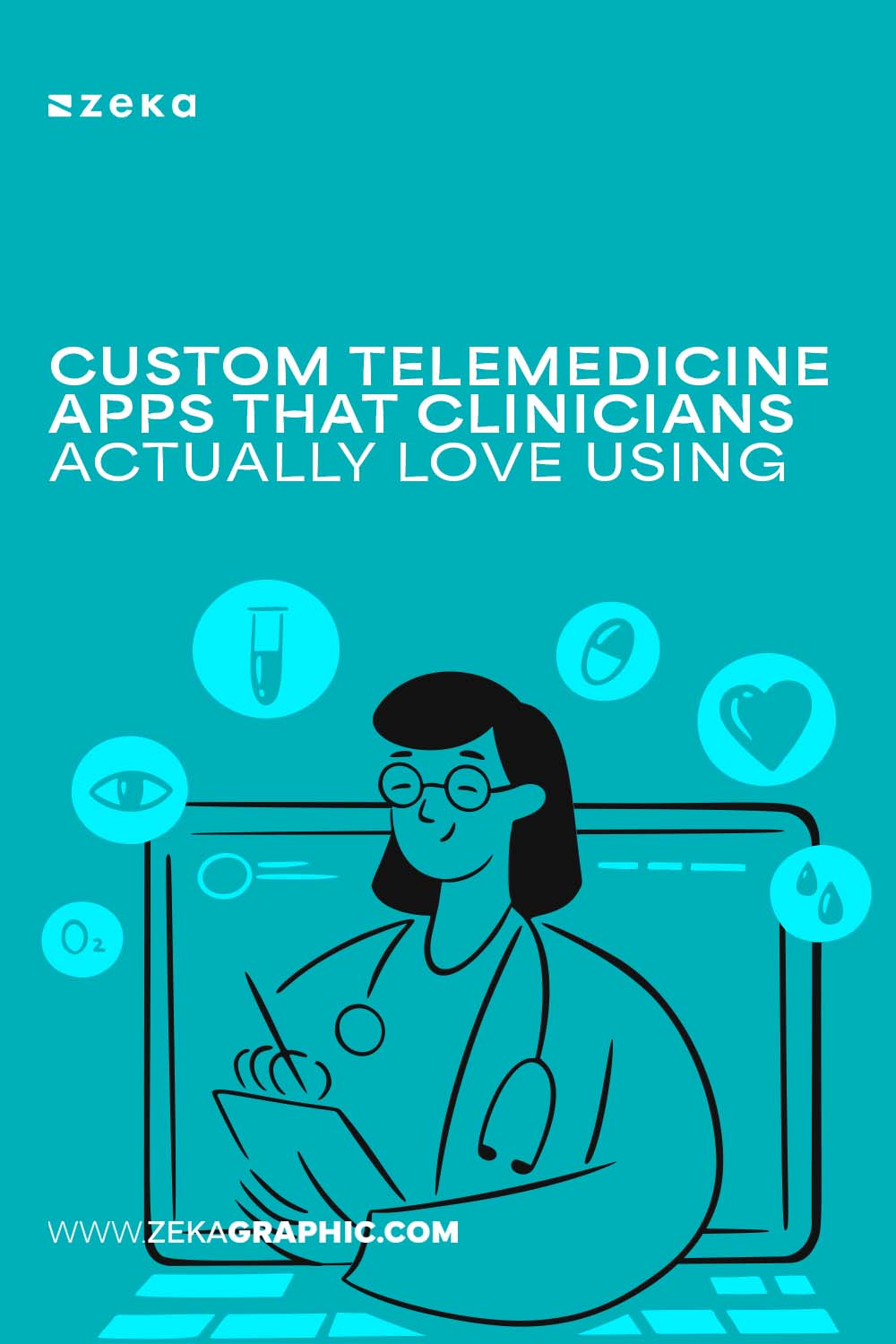
Telemedicine is no longer a novelty. It is part of daily care, from triage to follow ups to long term management. A lot of teams still use old, broken tools that make their work take longer. It’s really helpful when a telemedicine app is designed to work with the way doctors do things, rather than forcing doctors to change how they do things. That’s where custom development really shines, which is why both patient results and staff happiness often go up when the right tool is finally found.
If you want a deeper look at the building blocks behind successful platforms, you can skim the practical details most teams explore before they commit. Companies like Darly Solutions, which developed this kind of software for healthcare providers, tend to start with the problems at the point of care and only then select the tech.
Advertisment
Off the shelf tools are fast to try but slow to love. They come with preset flows, generic data fields, and a feature checklist shaped by the average clinic. Real clinics are not average. A community mental health practice needs low friction messaging, safety plans, and asynchronous therapy notes. A cardiology group needs device data, remote monitoring alerts, and medication reconciliation that does not create double work. Custom apps let you design around these differences so appointments move faster, not slower.
There is also the question of scale. As patient volumes grow or new services launch, custom backends can add queues, expand APIs, and support more devices without reinventing the whole stack. That agility is tough to get from a rigid template built for thousands of unrelated users.
The best telemedicine apps are quiet. They get out of the way and let care happen. A practical feature set often looks like this:
Notice what is missing. There is no feature bloat. Every element maps to a daily task and saves time at the point of care.
Advertisment
Under the hood, modern telemedicine relies on a few simple ideas done well. Real time video and chat ride on proven protocols, while the rest of the experience is API first. That means the mobile app, the clinician dashboard, and even patient portals all talk to the same services. When you add a new questionnaire or tweak a triage rule, the change reaches every surface.
A clean separation of services also helps with privacy. Protected health information stays in encrypted stores. Logs keep track of who saw what and when and are limited by job. Standards are used by integrations, such as FHIR for clinical data and OAuth for safe permission.You can rotate keys, set data retention, and survive audits without sweating through your shirt.
Compliance tends to feel heavy until it is baked into the product. Consent capture becomes a friendly screen before the visit starts. Data minimization means collecting what you need for care and nothing more. Backups are automatic, encrypted, and tested. Fire is notified before a vendor deal ends because it keeps track of them. When safety officers and engineers work together from the start, they make a tool that is safe and simple to use.
Teams like Darly Solutions often formalize this into a living checklist. As your services expand across regions, the app grows with you while keeping pace with rules on privacy, accessibility, and medical device guidance.
Telemedicine works when patients come back. Engagement is not a banner or a buzzword. It is the feeling that care is close at hand and simple to reach. Thoughtful design makes this real. Patients can book at night after the kids are asleep. They get a plain language reminder and a link that opens the visit without wrestling a password. Afterward, they receive a summary in their language and a way to ask a quick question without booking a full slot.
A few small patterns tend to raise retention:
When the app behaves like a good clinic coordinator, trust builds and no shows drop.
Advertisment
Pick a narrow slice of care and make it great. One service line, one patient segment, one critical flow. Measure a few outcomes that matter to clinicians and patients. Time per visit, message backlog, refill delays, missed follow ups. Ship improvements weekly. Keep the roadmap short and public so staff see their feedback land in the product. By month three, the difference is visible on the schedule and in the inbox.
Custom telemedicine is not about adding more screens. It is about designing fewer, better ones around how care actually happens. With a focused scope, a crisp architecture, and a partner who understands both engineering and healthcare like Darly Solutions, you end up with a tool that feels obvious in the best way. It lets clinicians be clinicians and patients feel looked after, which is the whole point of bringing healthcare into people’s hands.
Advertisment
Pin it for later!

If you found this post useful you might like to read these post about Graphic Design Inspiration.
Advertisment
If you like this post share it on your social media!
Advertisment
Want to make your Business Grow with Creative design?
Advertisment
Advertisment